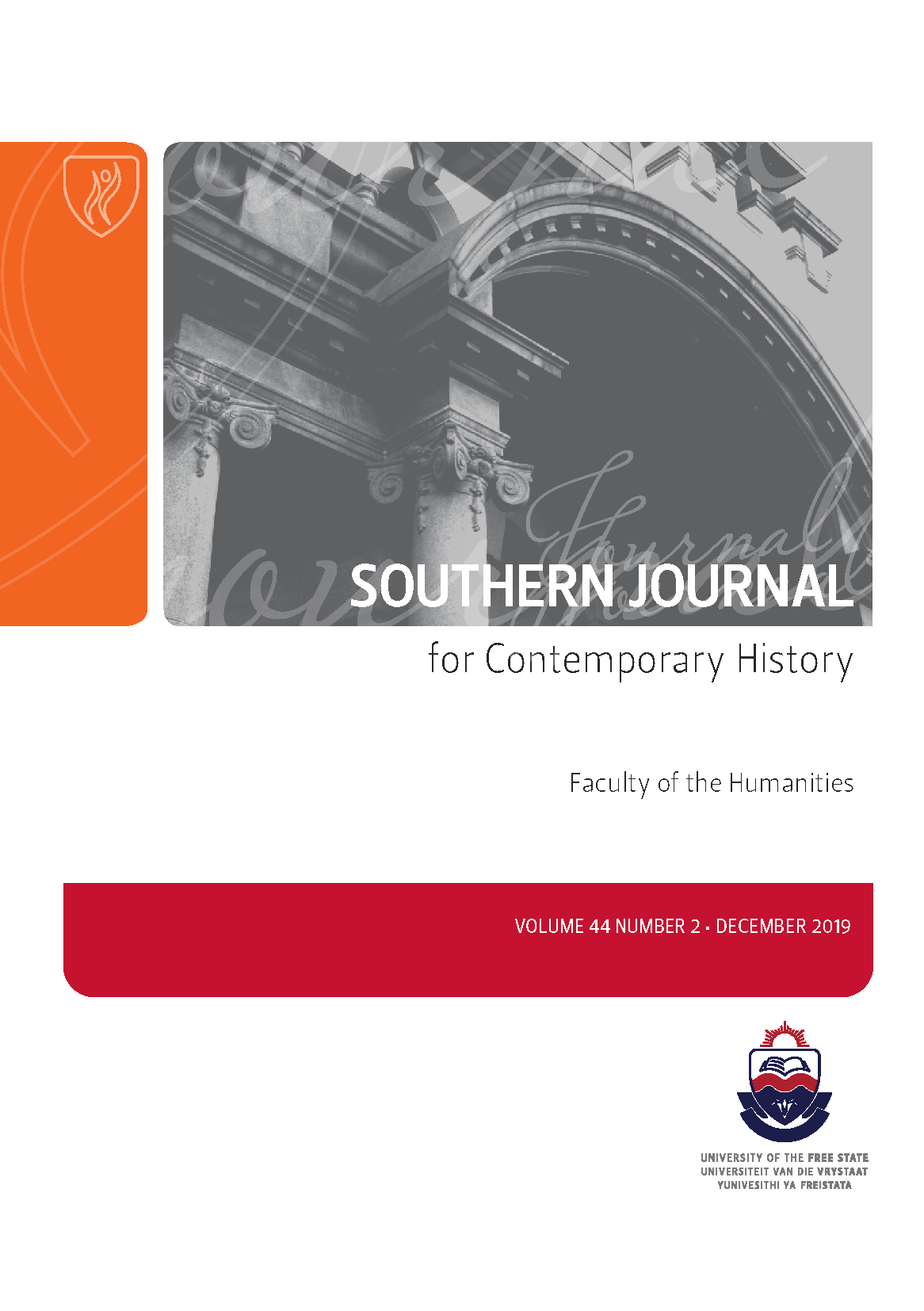Walking in the footprints of the colonial masters: agricultural development and peasant food production in Malawi, 1961 - 1994
DOI:
https://doi.org/10.18820/24150509/SJCH44.v2.6Keywords:
Malawi, Agricultural development, Food production, Peasants, SAPAbstract
The first three decades of post-independence Malawi was a period of remarkable agricultural transformations. Under the leadership of Hastings Kamuzu Banda, the country made agricultural interventions that had implications on peasant food economy. Here I examine the extent to which Banda’s interventions affected peasant food production in Malawi from 1961 to 1994. While most scholars consider Banda’s regime as a period of either remarkable economic prosperity or economic stagnation and brutality, I draw attention to the complex, dynamic, varied and contested ways by which Banda’s agricultural policies affected the peasants in rural Malawi. Although Banda’s interventions appeared to have brought economic prosperity especially in the period prior to the late 1970s, I argue that the success was transient, benefitted a few progressive farmers, and thus, was tantamount to “growth without development” among most poor peasants. The study calls for a deeper analysis of the much resented autocratic leadership that presided over the earlier post-independence Africa era.




